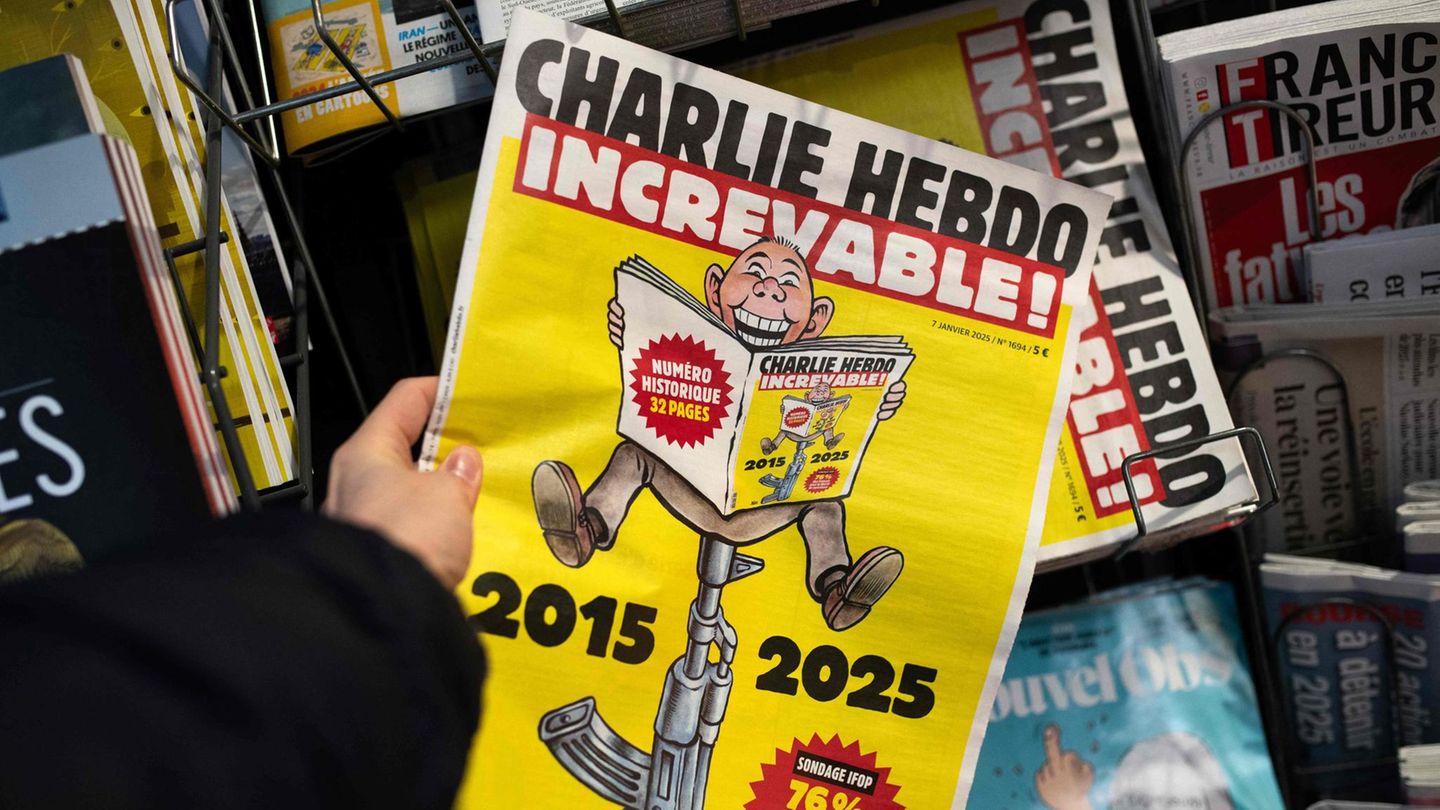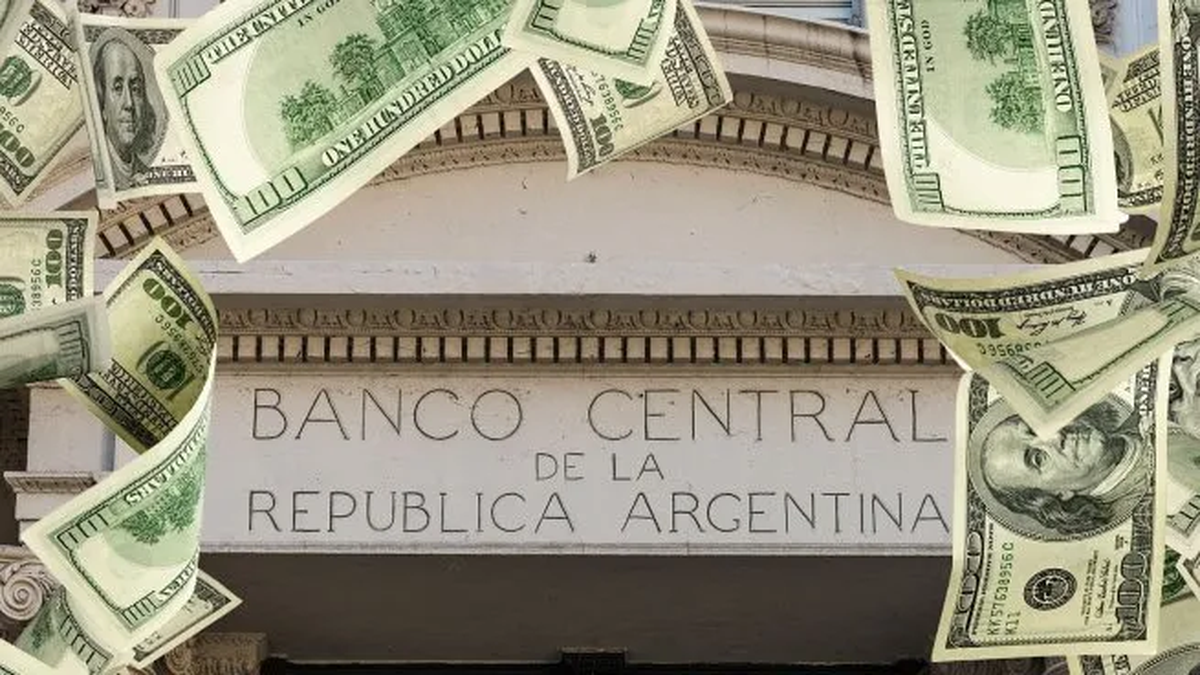Ten years after the attack
“Je suis Charlie” was the motto back then – but everyone’s solidarity has long been lost
Copy the current link
Ten years ago, the satirical newspaper “Charlie Hebdo” fell victim to a brutal Islamist attack. The terror has left wounds in France – and deep trenches.
They didn’t kill the newspaper. On the tenth anniversary of the attack, France’s satirical newspaper “Charlie Hebdo” is publishing a special edition: “Indestructible!” is the title line, below which is a drawing of a visibly good-humored reader sitting with his legs spread on the muzzle of a machine gun. The results of an opinion poll are also touted on a red jagged background: “76 percent of French people support the freedom of caricature.”
A pleasing number, emphasizes Gérard Biard, the current editor-in-chief of the magazine, in the foreword to the issue. In contrast to the perceived situation, it shows that approval for mockery à la “Charlie” has increased in recent years – even if it is directed against religions and dogmas. Biard sees this as good news: the majority of French people are far from wanting to give up their historic right to enjoy mocking power and the powerful.
“Majority” is an important word in this context – because hardly any topic is debated as fiercely in France as the fragmentation of society. “Je suis Charlie” was the motto back then in solidarity. But today you tend to ask yourself: Who is Charlie today? And it also provides the dark answer: The solidarity that united the country in 2015 after the brutal attack on the editorial team – that seems to be gone these days.
“Charlie Hebdo” also means: the freedom to “think God sucks”
Since 2006, “Charlie” had repeatedly printed cartoons of Mohammed: “It’s hard to be loved by idiots,” the prophet complained on a front page. Above him is the line: “Mohamed overwhelmed by fundamentalists.” Despite the clarification, Muslim associations felt attacked by the small newspaper even back then. And not just them: parts of the left also accused “Charlie” of Islamophobia because of his uncompromisingly heretical stance. It was the beginning of a dispute that continues to this day.
After the initial trouble, the satirical newspaper was often sued by Islamic associations. The fact that Marine Le Pen, of all people, defended the magazine at some point did not make the situation any better. But “Charlie”, the secular and humanistic defiance, was primarily against the burgeoning cultural relativism that he sensed in left-wing circles: criticism of religion was legitimate, the editorial team defended itself. It’s about the freedom to “think God sucks.” This must also apply to Islam. Talk of “Islamophobia” and religious discrimination is hypocritical because it ignores the real problem – racism against Muslims and Arabs. The then Charlie Hebdo editor-in-chief Stéphane Charbonnier did not live to see the publication of his pamphlet “Letter to the Hypocrites, and how they play into the hands of the racists”.
On the morning of January 7, 2015, two armed brothers stormed the newspaper’s office. They killed twelve people. In revenge, as they said, for the Prophet. On January 8, 2015, one of her buddies shot and killed a police officer. On January 9, the same perpetrator murdered four Jewish men in a kosher supermarket. And “Charlie Hebdo”, the petulant newspaper with its often vulgar fart humor, became a global figurehead for freedom of expression. On the front page of the first issue after the attack, Mohammed cried: “All is forgiven.”
Ten years later, “Charlie” is still the paper that offends with crude mockery. When women in Iran tore off their headscarves in protest against the religious dictatorship, the magazine caricatured the situation in France, where demonstrations were taking place again for the right to veil for schoolgirls. Rape victim Gisèle Pelicot also recently graced the title. Under the heading “Man of the Year” she said: “There were 51”. Above all, “Charlie” has remained true to its enlightened spirit: what counts is equality, freedom and secularism – everything else is stupid stuff.
For France, the deadly shootings in January 2015 were the nightmarish start of a year that would end horribly: November 13th saw the attacks on the Bataclan and other targets in central Paris. Even afterwards there was hardly any time for healing or recovery. In 2016, an Islamist drove a truck into a celebrating crowd in Nice. In October 2020, the teacher Samuel Paty was beheaded – Islamist terror has left wounds. Fear. And deep trenches.
“Charlie” is also exploited by the extreme right
Because that too has changed in the last ten years: The extreme right, more present than ever before, has long been exploiting the freedom of expression propagated by “Charlie” and his followers for their tirades against migrants and minorities. Meanwhile, in parts of the left-wing extremist spectrum, it is now considered socially acceptable to glorify the anti-Semitic terrorist organization Hamas as an Islamic resistance movement. Two poles that loudly want to dominate everyday life and the discussion.
The ten-year anniversary of the attack on the editorial office of “Charlie Hebdo” commemorates the victims. To brilliant people murdered by hateful fanatics. But it also reminds us of what is at stake. The values of the republic, the open and social society, can only be defended together. Freedom, equality, secularism – the spirit of “Charlie” extends far beyond his caricatures. His fearless straightforwardness can be an excellent compass in these complicated times. And he still has a lot to do.
Source: Stern
I have been working in the news industry for over 6 years, first as a reporter and now as an editor. I have covered politics extensively, and my work has appeared in major newspapers and online news outlets around the world. In addition to my writing, I also contribute regularly to 24 Hours World.





